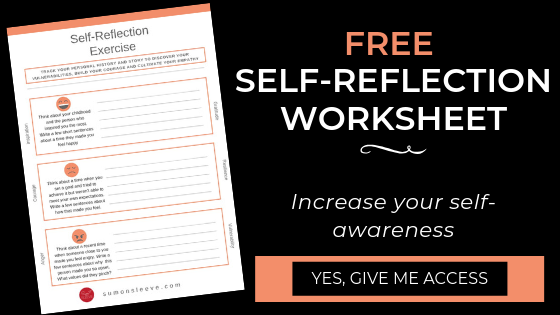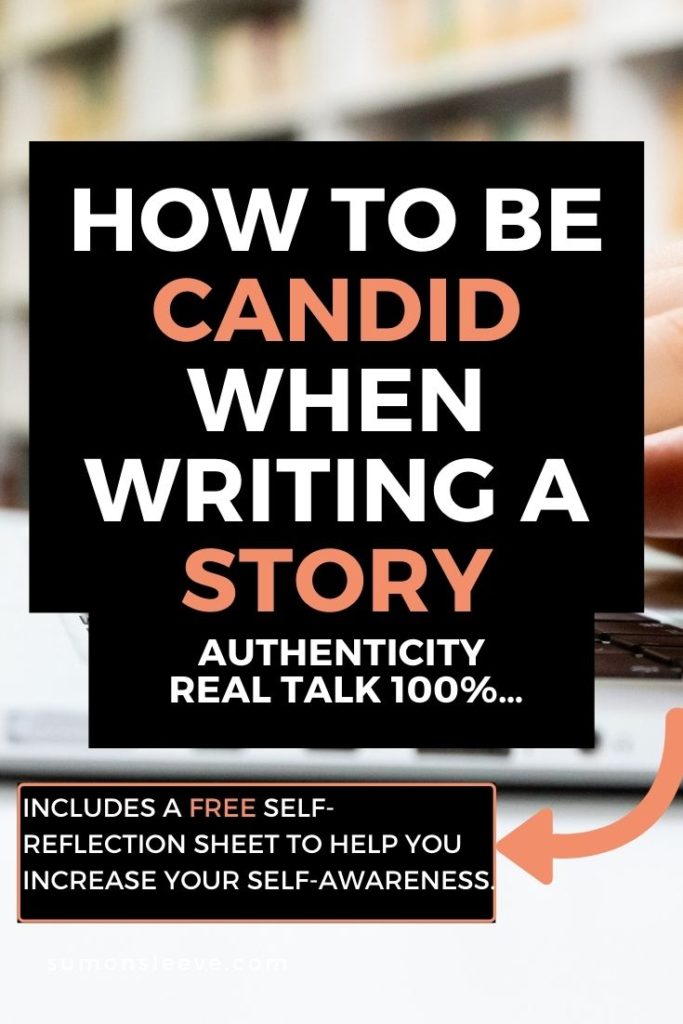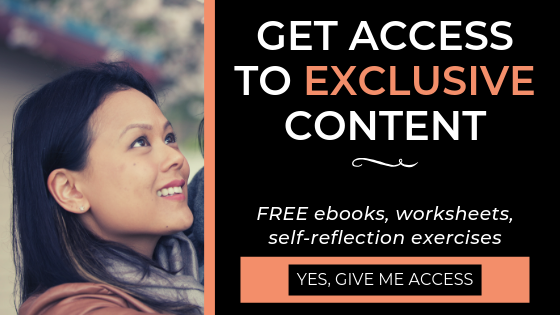If you're trying to be someone else, you're doing it wrong.

Why keep it real?
Authenticity, candour, real talk 100%…this is what readers value when they consume a story.
They don’t want fluff. They don’t want to be talked down to. They don’t want posers. They’re too smart for that. They know when you’re faking it. They can read between the lines of posturing.
How can you get down to earth through your words so that a stranger feels like they know you without ever meeting you?
I value authenticity and detest hypocrisy
I started writing at the age of 6. Like many other writers, it was a means of therapy to help make those irrational thoughts into rational sentences.
My writing journey has taken its fair share of detours before landing as my passion. From publishing scientific research papers, healthcare books to composing project charters, lengthy government documents and arduous reports, it wasn’t until the summer of 2017 that I wrote my first blog post.
I finally had a creative space to be myself. I could write what I wanted to without rules or having to pass it through multiple working groups and committees where the final product was so polished, it reflects a generic, standard voice with zero personality.
It was my opportunity to become the unfiltered, no-nonsense, straight-talking human that I was born to be.
Over 3 years later, I published 3 books and 3 courses, with the latest review of “How To Deal With Asian Parents”,
“there is no preaching, rather, personal stories and it comes across as very genuine and almost raw.”
I’m someone who values authenticity and detests hypocrisy. I tell it like it is, with a bit of snarkiness and sarcasm. Having grown up with 2 older sisters, I needed the humour to get through the times our menstrual cycles synced and had to share one bathroom in the house.
Anyway, without further ado, here’s how you can be candid when telling your story.
Don’t jump into bed without some foreplay.
Who are you and why should I read your words?
Tell me a little bit about yourself and why you care about the topic. Give the reader context.
If you tell me why you care so much, maybe I’ll keep reading after the first 10–15 seconds.
It’s like,
What? And so what?
But of course, if you’re writing instructions on how to fix a leaky faucet or a recipe for shortbread, please skip to the action.
I don’t need your preamble on how the water damage increased your insurance premiums or how those cookies remind you of the two weeks you spent in London, getting over your ex-girlfriend.
…unless you’re a famous influencer and/or celebrity and those details would actually make you more authentic and interesting.
But then again, I honestly doubt you‘d be reading this.
Write as you speak.
Do I use the word ‘superfluous’ when I’m chatting with my friends?
No, it’s superfluous.
Don’t overthink your words. I’d say 95% of the time, I use the first word that pops into my head. Complicated writing leads to confusion which leads to readers thinking you know more than them. No one likes a writer who’s sitting on their high horse.
If someone has to re-read your sentence more than a couple of times to understand what you’re saying, you’re overcomplicating things.
Do you want someone to leave your page to Google the definition of a weird word you used?
Not really.
Although I hope you didn’t leave to look up what ‘superfluous’ means.
Use a thesaurus sparingly and only for the right reasons
The thesaurus isn’t your stylist, make-up artist or social media filter. It’s not there to make you look better or in this case, sound smarter. For me, it’s a tool to get my noggin jogging.
For instance, if I’ve been using the word, “very” a lot. I’ll first think of other words that have a similar meaning. I use my brain, not opening a new tab or window or book (Do people still use those? I digress).
Then, I’ll come up with a list:
Incredibly, quite, extremely, super, immensely…
I’ll pick one that fits the sentence:
It’s incredibly important.
Or
It’s quite important.
Or
It’s extremely important.
But if there isn’t one that gels; I’ll start spitballing verbally, like I’m talking to someone:
It’s really important.
It’s surprisingly important.
It’s exceptionally important
Or to keep things concise, I might forgo the word entirely. It’s not important.
Try using an emotion wheel
When it comes to describing how you or someone feels in your story, it’s easy to jump to the basic emotions like happy, angry, scared, sad or bad. And often, it’s fine to use those words to describe the situation.
However, to give your story a bit more depth, you can go beyond the basic emotion to identify the more intricate feeling that you’re trying to describe.
An emotion wheel was most popularized by Robert Plutchik, an American psychologist; however, there are other variations to choose from (Junto Wheel, Geneva Wheel).
The wheel consists of 3 sections. In the centre of the circle, there are the basic emotions and it moves to the outer edges, the degree of each emotion changes.
For instance,
“I felt sad the employer again chose another candidate over me.”
Or
“I felt hopeless in my job search and disappointed in their decision.”
And when used to describe feelings in a story, it gives more variety and allows the reader to better immerse themselves in your words, eliciting the specific emotion that you’re trying to convey.
A bonus is that using an Emotion Wheel allows you as a writer to increase your self-awareness, emotional literacy and understanding of your own feelings.
It’s a win-win!
Tell your story like you’re having a casual conversation with the reader.
However, don’t treat your reader like your best friend or your mom, because you’re going to get lost in the details, oversharing things like the name of the nail salon that always gives you the perfect pedicure and no one cares about.
Or you’ll assume the reader knows that your dog’s name is Bailey and his favourite chew toy is a squeaky wiener, glazing over the context.
‘”Then he knew I was hiding under the bed because I accidently grabbed Bailey’s wiener.”
Say WHAT???
When thinking about how you want to share your story, imagine telling it to a stranger who’s willing to sit down with you for a few minutes to have a conversation…like a bartender who’s sticking around after he’s finished his shift. Respect your reader. Respect their time.
Digress only if you think it isn’t really a digression
It lets your reader follow your train of thought, inside that kooky brain of yours, shedding light on how your mind wanders. Going slightly off-topic allows your reader to get to know you, underneath the superficial layers and into your soul.
Okay…but don’t go down a rabbit hole where it completely sidetracks and starts to get weird. You don’t want the reader to think you’re nuttier than a jar of peanut butter. Although, a peanut isn’t really a nut; it’s a legume because they’re actually the seeds that grow in pods similar to peas, lentils and beans. But true nuts are…
Yeah, I also just rolled my eyes and kept scrolling.
If you feel like you could write an entire story based on the digression, don’t include it. Keep it relevant.
Grammar matters but shouldn’t overpower
A story needs to make sense and flow properly. A bunch of run-on sentences strung together will make any reader confused, losing interest quickly. Being grammatical helps communicate your story, preventing any misinterpretations or misunderstandings; however, a great story doesn’t require perfect grammar.
Storytelling is an incredibly coveted skill. A special talent is required to deliver a powerful story with impact, leading the audience through the emotional ups and downs of a character’s experience.
No matter how technically accurate you are, your inner storyteller is what gets readers interested. It’s about your style, authentically displaying the essence of who you are, how you convey their message to the world and how you use words to intentionally evoke a specific feeling in the reader.
Hit post, publish, send…just do it.
Focus on completion over perfection. Imperfection is what makes us human. Making mistakes, admitting that you’re not perfect and writing about how you’ve embraced and owned those parts of yourself are the best ways to demonstrate authenticity (and live authentically).
Have you heard of evergreen documents?
It means it’s continually edited and updated. Folks have also referred to it as a living document.
Try living your life as evergreen, learning as you go and constantly updating yourself, the hardware and software.
If you have something you’ve been working on for a long time and think it’s ready for public consumption but you’re afraid to do it…today is the day you hit that button.
Be candid. Be bold. Give yourself compassion. Show us your true self.





